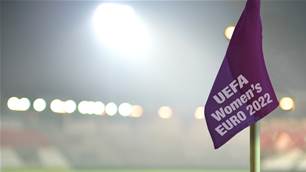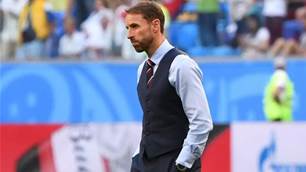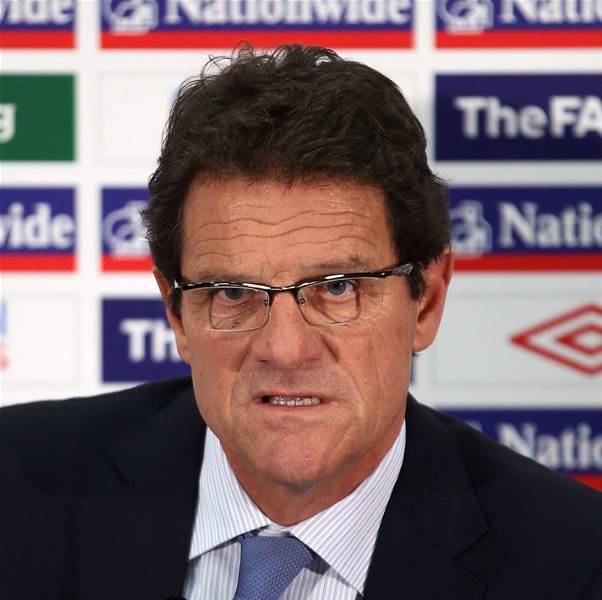FABIO Capello fears England's players can forget any hope of glory at Euro 2012 if they arrive in the same state as they did for the World Cup.
Capello learned yesterday that he will not pay for the Three Lions' failure in South Africa with his job, leaving him clear to take charge of a European Championship qualifying campaign that starts against Bulgaria at Wembley on September 3.
Before that, England have a friendly with Hungary on August 11, when big changes are expected, including the introductions of Adam Johnson, Kieran Gibbs and Bobby Zamora.
It will be the start of a transformation of personnel prior to the next World Cup in 2014, and possibly a change in fortunes for a country that perceives itself to be a big nation but, according to Germany skipper Philipp Lahm, and quite a few others as well, no longer is seen that way to the outside world.
Capello now has the task of regenerating the side.
However, he is dubious about progress being made unless some way is found to lessen the effects of draining club campaigns.
"If we arrive at the next tournament fresh, yes, we have a chance," he said. "If we arrive tired, no.
"We have to try and understand what happened but in my experience, it is not only the body that is tired, but also the mind. The mind burns more energy than when you run.
"Possibly you need more time on holiday between the end of the Premier League and the finals. When Denmark won the European Championships in 1992, they were on the beach when they got told to play, although the pressure on Denmark is not the same as it is on England."
Capello's argument rather overlooks the obvious examples of Carlos Tevez and Dirk Kuyt, whose natural game is high energy and have somehow managed to come off Premier League seasons at Manchester City and Liverpool respectively and still replicate their form in South Africa.
Never a man who readily admits to making mistakes, Capello nevertheless made a few.
Even he now concedes the pre-tournament plans he so meticulously worked out - two altitude training camps in Austria and a couple of friendlies prior to departure for South Africa 10 days before the opening match against the United States - were excessive.
"Yes, I probably regret that now," he said. "You could change this in the future but it is too easy to say these things after the event."
Such is the intense nature of Capello's personality that he will not easily escape what must go down as one of the biggest disappointments of his entire career.
From a professional perspective it will come as a blessed relief that he has a chance to make amends, even if the situation looks to have been arrived at by default, through a combination of a huge compensation bill and a lack of viable alternatives.
The removal of a clause less than five weeks ago which would have allowed the FA to let Capello drift away in the event of such a catastrophe has been put forward as an act of folly.
Yet it seems the Italian would still have been entitled to a hefty severance sum of around £6million, while, without the benefit of hindsight, the reasoning behind the removal was sound.
"Fabio had several approaches before the World Cup," confirmed Club England managing director Adrian Bevington.
"If he had not made us aware of these approaches, there would have been huge speculation and doubt as to whether he was going to stay with us or not, which would have undermined the whole tournament.
"Every day there would have been questions about whether the players were being destabilised.
"We took that clause out as a commitment to Fabio after the World Cup on the back of Fabio giving his commitment to England."
So Capello continues, as does a tournament containing Holland and Uruguay - combined population 20million - which rather shatters the Italian's explanation as to why Germany were so superior, once he got the issue of dual nationality out of the way.
"Against England, Germany played four foreign players, who all have double passports," said Capello, which is true, whilst overlooking the fact that star man Mesut Ozil, Sami Khedira, Jerome Boateng and Mario Gomez were all born in Germany, unlike Miroslav Klose and Lukas Podolski, who are Polish by birth.
"Germany did not produce good players for a long time but now these players have come from the Under-21s and are playing very well.
"They are good technically and physically. We hope to find the same players in England, but you have to understand there are 70 million people in Germany, compared to 49 million in England.
"And in England only 38% of players are English. This is one of the reasons."
Related Articles

World Cup favourites England have one gaping question left to answer

Rampant England reach Women's Euros final













